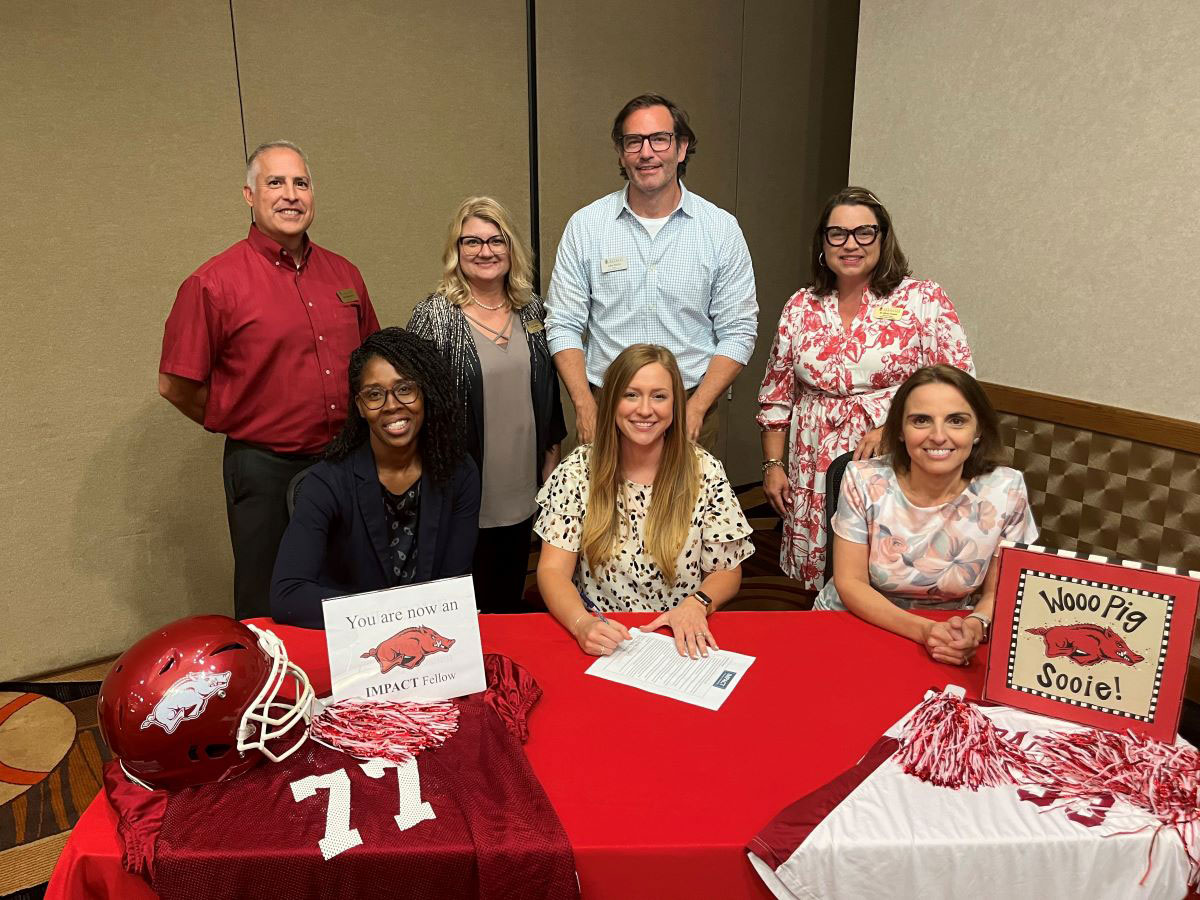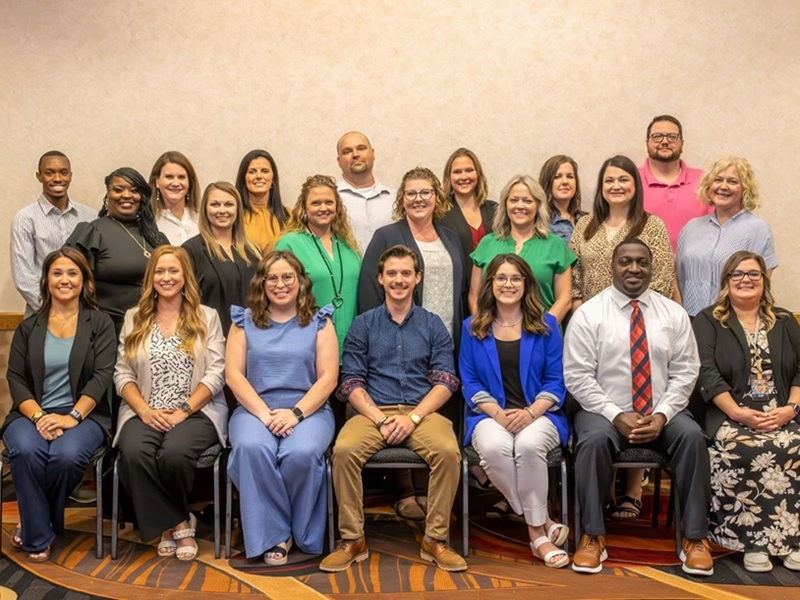The IMPACT Arkansas Principal Fellows Program footprint now includes 60 percent of high-poverty school districts across Arkansas.
As of this summer, the innovative program in the College of Education and Health Professions has been preparing future leaders for the state's highest-needs schools for 10 years. Educators who show leadership potential and aspire to become leaders in their schools are chosen for the program each year through a rigorous review process.
The 21 new members of the ninth cohort met for the first time in June to participate in an intensive summer symposium, which kicked off the 18-month program that leads to a master's degree in educational leadership from the U of A. Funding from the Walton Family Foundation and other supporters, including the Windgate Foundation and the Carl B. & Florence E. King Foundation, ensures that most of the tuition and fees are covered while fellows are enrolled in the program.
"Highly effective school leadership is at the heart of attracting and retaining excellent teachers, building community partnerships and nurturing a school culture where students feel safe and love learning," said John Pijanowski, a principal investigator of IMPACT. Pijanowski, a professor of educational leadership at the U of A, understands the ripple effect that equipped school leaders can have on an educational environment, student achievement, workplace desirability and positive relationships in the community.
Since 2014, IMPACT has supported 168 aspiring school leaders who have served 145 high-poverty schools in 97 school districts and eight public charter schools.
 New IMPACT fellow Chelsea Ridenhour (middle, front) signs her letter of commitment next to mentor Tamara Wiley (to her left), a cohort 8 fellow. |
The program's reach continues to grow across Arkansas. The latest cohort includes 20 schools that are new to IMPACT. The fellows all work in Arkansas schools that serve high percentages of economically disadvantaged students.
Chase Fowler, an AP U.S. history teacher and student services coordinator at Trumann High School, is the first to represent his school district in the program. He learned alongside cohort 9 this summer, joining the other fellows in signing a letter of commitment to the program. Signing day also included running through a spirit tunnel made up of last year's cohort while the Razorback fight song played in the background. They all brushed up on the skill of calling the Hogs, too.
The overarching mood was clear: we're all on the same team.
Fowler looks forward to the intensive and ongoing one-on-one coaching offered throughout the program, which is pivotal to IMPACT's success. Each fellow also has a mentor to help guide them along the way.
"Even in the early parts of our IMPACT Arkansas Fellowship, it was apparent that it was the most valuable educational and professional experience that I had participated in," Fowler said. "The vision, mission and application of the elements within the fellowship are priceless, and we are incredibly fortunate to be able to draw from that deep well of experience and support."
He's excited to cultivate new leadership skills that will positively impact his school's academic culture. "It is important to me to continue to foster beneficial relationships among teachers, students and administrators and to develop a shared vision of progress among all in the district. I believe IMPACT will facilitate that," he said.
Emily Hester, assistant director of academics at eStem Downtown Junior High in Little Rock, is excited about the support and training she'll receive as a fellow.
"The IMPACT Arkansas Fellowship symposium was an inspiring start to cohort 9's journey in becoming educational leaders in our schools and communities," she said. "Engaging in sessions on adult learning and coaching, along with observing the action research of current IMPACT fellows, prepared us for the opportunities ahead. Most importantly, we established a supportive network within our cohort and with mentors and coaches that will be invaluable."
Mentorship and development extend into the early years of a fellow's new leadership position. Fellows also join an active group of alumni who give back to the program and serve as a professional learning network for one another. IMPACT graduates commit to staying in their current school for two years. Nearly 100 percent remain in Arkansas schools, and 81 percent stay in high-poverty schools.
"What a huge privilege it is to work with a bunch of bright individuals all across the state who are focused on making a positive impact on education," said Jeremy Miller, an instructional facilitator at Highland Middle School and a new IMPACT fellow. "Being able to work alongside mentors and other fellows will develop and strengthen my own leadership abilities so that together we can make meaningful contributions to the educational landscape across this great state."
Topics
Contacts
Shannon G. Magsam, director of communications
College of Education and Health Professions
479-575-3138,
